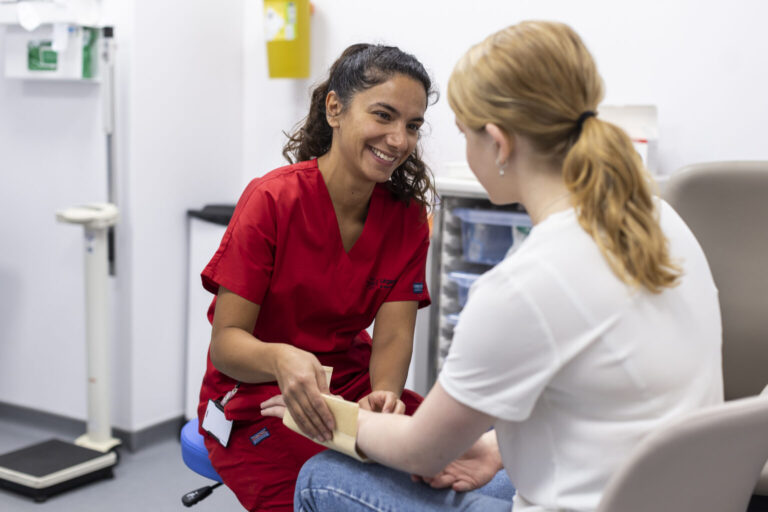When you or a loved one needs urgent medical attention, knowing where to find the nearest urgent care can be a lifesaver. Urgent care centres offer immediate help for non-life-threatening conditions that need prompt attention. This article will guide you through what urgent care near me is, when to use it, and how to find the closest one near you.
What Is Urgent Care?
Urgent care is a type of medical service that provides immediate treatment for conditions that are not severe enough to require a visit to the accident and emergency (A&E) department but still need quick attention. These centres are usually open outside regular GP hours, including evenings and weekends, making them a convenient option for many people.
When Should You Go to Urgent Care?
It’s important to know when to choose urgent care over other options. Urgent care is suitable for conditions like:
- Minor cuts that may need stitches
- Sprains and strains
- Minor fractures
- Fever or flu symptoms
- Ear infections
- Minor burns
- Rashes or skin infections
- Allergic reactions (non-life-threatening)
- Respiratory infections
If your condition is more serious, such as chest pain, severe bleeding, or difficulty breathing, you should go to A&E or call emergency services immediately.
Benefits of Urgent Care
One of the biggest benefits of urgent care centres is their availability. Unlike GP surgeries, which may require an appointment days in advance, urgent care centres are typically walk-in. This means you can get treated quickly without the long wait times often seen in A&E departments.
Another advantage is the range of services offered. Many urgent care centres are equipped with X-ray machines, laboratories, and pharmacies, allowing for comprehensive care under one roof. This can save you time and stress, especially if you’re in a situation where you need fast results.
How to Find Urgent Care Near You
Finding the nearest urgent care centre is simple and can be done in several ways:
- Online Search: A quick search using terms like “urgent care near me” will provide a list of nearby centres. Most search engines will show a map with locations and details, such as opening hours and contact numbers.
- Mobile Apps: Several apps are designed to help you find urgent care centres based on your location. These apps can provide real-time information on wait times, distance, and even directions.
- Ask Your GP: If it’s during regular hours and your GP’s office is open, you can call them for advice on the nearest urgent care centre. They may also provide a referral or recommendation based on your specific needs.
- Local NHS Website: The NHS website often lists urgent care centres in your area, along with their services and hours. This can be a reliable source of information, especially if you’re unfamiliar with your surroundings.
What to Expect During Your Visit
When you arrive at an urgent care centre, you’ll likely be asked to fill out some forms, including your medical history and the reason for your visit. After this, you’ll see a healthcare professional who will assess your condition and recommend treatment. Depending on your needs, you might receive medication, get a prescription, or be referred to a specialist.
Urgent care centres aim to treat patients as quickly as possible. However, wait times can vary depending on how busy the centre is and the severity of your condition. It’s always a good idea to bring something to keep you occupied while you wait, just in case.
Costs and Payment Options
In the UK, urgent care services are typically covered by the NHS, so you won’t have to worry about payment if you’re a resident. However, if you’re visiting from abroad or require specific treatments not covered by the NHS, there might be a fee. It’s best to check with the centre beforehand if you have any concerns about costs.
Preparing for an Urgent Care Visit
It’s always better to be prepared, even when dealing with something unexpected like a trip to urgent care. Here are a few tips:
- Have Your ID and Health Information Ready: Bring your NHS number, any relevant medical records, and a list of medications you’re taking. This will help the healthcare professionals provide the best care possible.
- Know Your Allergies: Make sure you inform the staff of any allergies you have to medications or treatments.
- Bring a Friend or Family Member: If possible, bring someone with you, especially if you’re feeling unwell or anxious. They can provide support and help with any decisions that need to be made.
Also Read:https://deptfordmedicalcenter.com/eye-care/
Conclusion
Knowing where to find urgent care near you can make all the difference in a medical situation. These centres provide a vital service, offering quick and convenient care for non-life-threatening conditions. Whether you’re dealing with a sprained ankle or a high fever, urgent care centres are there to help when you need it most.
By following the tips in this guide, you can ensure that you’re prepared and informed, making your next visit to urgent care as smooth as possible. Remember, in more serious situations, always seek immediate help through A&E or emergency services. But for those moments when you need care fast and close to home, urgent care centres are the perfect solution.




